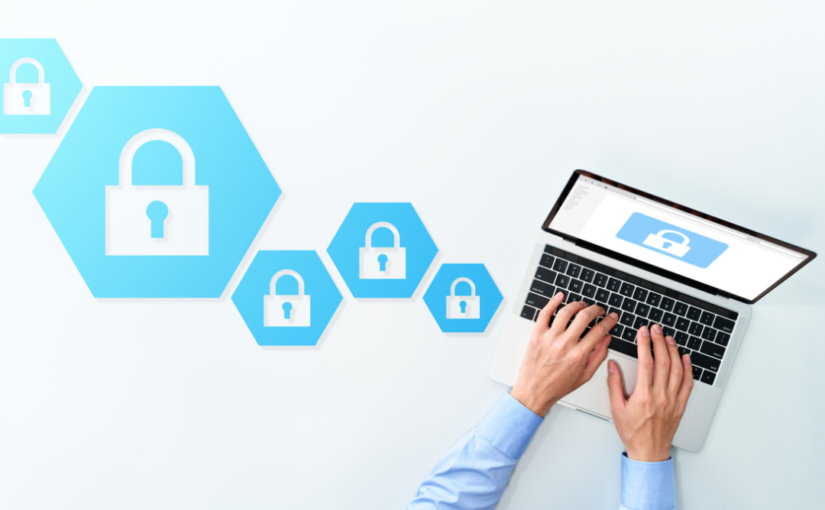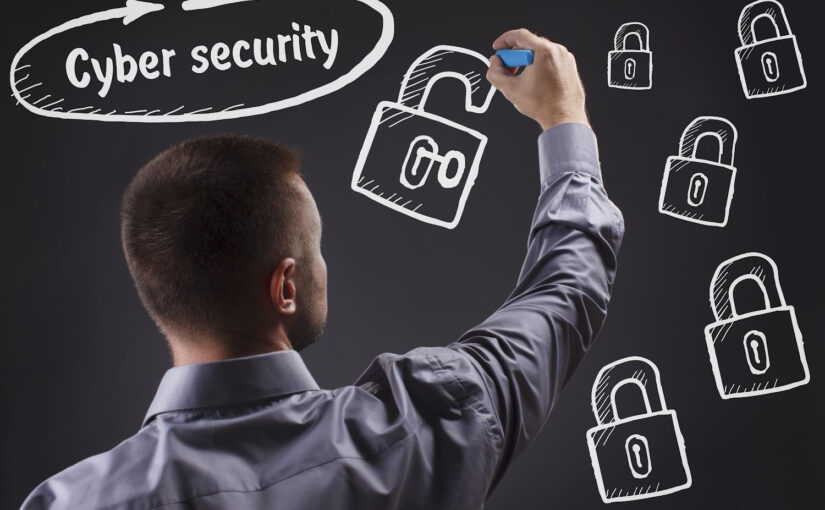The protection of our personal and sensitive data has never been more critical. The alarming rise in data breaches and cyber threats has put data security at the forefront of global concerns. Encryption and data protection stands as the first line of defense, ensuring the privacy and security of our most confidential information. This comprehensive guide explores the indispensable role of encryption in fortifying data security, offering an in-depth look at how advanced tools like iStratus can empower users to protect their sensitive data effectively.
The Importance of Protecting Your Data
Personal data, from financial records to private communications, is the lifeblood of our digital identity. In an age where information flows freely across the internet, the potential for data breaches has escalated dramatically. Such incidents can lead to financial loss, identity theft, and significant personal and professional damage. Therefore, securing personal data through robust encryption methods is not just a recommendation; it’s a necessity for safeguarding your digital footprint against unauthorized access and cyber threats.
Exploring the Landscape of Data Security
Data security encompasses a wide range of practices designed to protect digital information from unauthorized access, disclosure, alteration, or destruction. Among these practices, encryption stands out for its ability to convert sensitive data into a format that is unreadable to anyone without the correct decryption key. This article will delve into the significance of encryption in data protection, shedding light on how it acts as a critical barrier against data breaches.
The Role of Encryption in Safeguarding Sensitive Data
Encryption is the cornerstone of data security, offering a powerful means to protect sensitive data across various platforms and communication channels. Whether it’s for securing personal data, conducting secure file sharing, or protecting against data breaches, encryption ensures that your information remains confidential and secure. We’ll explore the different aspects of encryption and how it integrates with data protection strategies to provide comprehensive security for your digital life.
How iStratus Enhances Data Protection and Security
In the quest for enhanced data security, tools like iStratus play a pivotal role. iStratus goes beyond conventional data protection methods by offering an encrypted digital environment where users can safely manage their personal and sensitive data. From secure file sharing to safeguarding against data breaches, iStratus provides an all-encompassing solution for individuals looking to elevate their data security. This article will highlight the features of iStratus that contribute to its effectiveness in encryption and data protection.
What We Will Discuss
Throughout this article, we will cover the critical aspects of encryption and data protection, the threats posed by data breaches, and the importance of securing personal data. We will also provide insights into how iStratus can be utilized as a powerful tool in your data security arsenal, offering practical advice on leveraging its features for maximum protection. Join us as we navigate the complexities of data security and explore the solutions that can help you maintain the privacy and integrity of your sensitive data in the digital age.
The Essence of Encryption: A Deep Dive into Data Protection
Safeguarding our personal and sensitive information is paramount. Encryption serves as a vital shield, enveloping our data in a layer of protection that is impenetrable without the right key. This section explores the intricate world of encryption, focusing on its role in maintaining the confidentiality, integrity, and availability of our digital data.
Understanding Symmetric Encryption
Symmetric encryption uses the same key for both encrypting and decrypting data. This method is efficient for large volumes of data, making it a popular choice for securing online transactions and communications. By utilizing a single encryption key, symmetric encryption ensures that sensitive information, such as financial transactions and personal emails, remains secure from prying eyes.
The Critical Role of Key Management
Key management is the process of handling and safeguarding encryption keys to prevent unauthorized access. Effective key management ensures that the encrypted data remains secure throughout its lifecycle. It involves generating, storing, distributing, and destroying keys in a secure manner. Proper key management is essential for maintaining the security of encrypted data, as the strength of encryption lies not just in the algorithm but in the security of the key itself.
Securing Databases through Encryption
Database encryption involves encrypting data stored in a database to protect it from unauthorized access, including those with physical access to the storage medium. This practice, known as database encryption, is crucial for safeguarding sensitive information such as personal records, financial details, and confidential corporate data. By encrypting the contents of a database, organizations can ensure that their data remains secure, even in the event of a data breach.
Strategies for Data Loss Prevention
Data loss prevention (DLP) encompasses a set of tools and processes designed to identify, monitor, and protect data in use, in motion, and at rest. Encryption plays a key role in DLP by ensuring that, even if data is lost or stolen, it remains inaccessible to unauthorized users. By implementing encryption as part of a broader DLP strategy, organizations can significantly reduce the risk of sensitive information being exposed.
Mitigating Data Breaches with Encryption
A data breach can have devastating consequences, leading to the loss of sensitive information, financial damage, and erosion of trust. Encryption acts as a critical line of defense against data breaches by rendering the data useless to anyone without the proper encryption key. By encrypting data at rest, in use, and in transit, organizations can minimize the impact of a breach and protect their information from unauthorized access.
The Importance of the Encryption Key
The encryption key is the cornerstone of data security. Without the key, encrypted data remains a mystery, inaccessible and secure. The strength and management of the encryption key directly influence the effectiveness of encryption in protecting sensitive data. Ensuring the security of the encryption key is paramount, as it is the linchpin in the defense against unauthorized access and data breaches.
Why Encryption Matters More Than Ever: Safeguarding Our Digital World
As the digital landscape expands, the flow of personal information across the internet becomes constant and pervasive. The protection of this data has escalated from a mere precaution to an absolute necessity. This section highlights the critical importance of encryption in today’s interconnected world, ensuring that our sensitive data remains secure and private.
The Ubiquity of Digital Information Exchange
In the age of digital transformation, every online action—from banking transactions to social media interactions—entails the transfer of sensitive information. This constant exchange makes personal data vulnerable to interception by malicious actors. Encryption serves as a vital shield in this process, transforming sensitive data into a format that is undecipherable to anyone without the proper decryption key.
Encryption: The Guardian of Online Banking and Financial Transactions
Online banking and financial transactions are foundational to our modern economy, yet they present lucrative targets for cybercriminals. Encryption ensures the security of these transactions by encoding financial information, such as credit card numbers and bank account details, making them inaccessible to unauthorized parties. This protection is crucial in maintaining the integrity and trustworthiness of online financial systems.
Securing Social Media: Protecting Personal Interactions
Social media platforms are integral to our daily communications, yet they are fraught with privacy concerns. Encryption protects personal conversations, shared media, and other data exchanged on these platforms, ensuring that private interactions remain confidential. By encrypting this data, users can engage with the digital world confidently, knowing their personal information is safeguarded against unauthorized access.
The Impact of Encryption on Cybercrime Prevention
The role of encryption in thwarting cybercrime cannot be overstated. By rendering intercepted data unreadable, encryption effectively neutralizes the threat posed by cybercriminals. This not only protects individual users but also upholds the overall security of the digital ecosystem. Encryption acts as a deterrent to data theft, making it a critical component in the fight against cybercrime.
Beyond Data Protection: Ensuring Data Integrity and Authenticity
Encryption’s benefits extend beyond privacy; it also plays a pivotal role in ensuring the integrity and authenticity of data. By verifying that data has not been tampered with during transmission, encryption helps maintain trust in digital communications. This aspect is crucial in scenarios where the accuracy and reliability of data are paramount, such as in legal documents and medical records.
The Indispensable Role of Encryption
In our digital age, where personal information is constantly at risk, the importance of encryption has never been greater. It is not merely about preventing data from being stolen; it’s about ensuring that even if data falls into the wrong hands, it remains incomprehensible and useless. Encryption stands as the guardian of our digital privacy, integrity, and security, making it an indispensable tool in safeguarding our digital lives against the evolving threats of the cyber world.
iStratus: A Beacon of Data Protection in the Digital Age
In an era where digital security is paramount, iStratus stands out as a fortress of data protection. Leveraging sophisticated encryption technologies, iStratus offers a robust shield for your digital life, from routine tasks to the most confidential data. This section delves into the multifaceted encryption strategies iStratus employs to secure your digital existence.
Advanced Data Encryption: Safeguarding Your Digital Assets
- Encryption at Rest and in Transit: iStratus implements comprehensive encryption both for data at rest and data in transit. This dual-layer protection ensures that your digital notebooks, planners, and files remain encrypted not only while stored but also during transmission. Whether you’re actively accessing your documents or they’re simply stored awaiting your next use, iStratus’s encryption shields your data from unauthorized access, making it a bulwark against data breaches.
- Seamless Security for Daily Tasks and Sensitive Information: iStratus understands that security needs are universal, whether it’s for mundane daily tasks or highly sensitive information. Its encryption techniques are designed to offer seamless protection across the board, ensuring that every piece of data within the app is secured with the same rigor and diligence.
Secure Vault: A Sanctuary for Your Sensitive Information
- State-of-the-Art Encryption for Your Confidential Data: The Secure Vault feature is a testament to iStratus’s commitment to data security. Engineered for the safekeeping of your most sensitive assets such as passwords, banking details, and personal identifiers, the Secure Vault utilizes top-tier encryption standards. This ensures that only you, armed with your master password, can unlock access to this treasure trove of personal information, making it an impregnable vault against unauthorized breaches.
Privacy in Sharing: Encrypted Communication Channels
- Encrypted Sharing Options: In the digital age, sharing information is a necessity that comes with its risks. iStratus mitigates these risks through its encrypted sharing options, enabling you to transmit personal data—be it social security numbers, bank account details, or confidential documents—securely. This feature ensures that the information can only be decrypted and read by the intended recipient, providing a safe bridge for your sensitive data to travel across the digital landscape.
iStratus as Your Digital Guardian
iStratus distinguishes itself as a beacon of data protection, offering a comprehensive suite of encryption-based security measures. From safeguarding your daily digital interactions to protecting your most confidential information, iStratus delivers peace of mind in an otherwise vulnerable digital world. Its commitment to employing advanced encryption techniques across data at rest and in transit, combined with the Secure Vault and encrypted sharing capabilities, positions iStratus as an indispensable ally in the quest for digital security and privacy.
Practical Steps to Enhance Your Digital Security in the Modern World
Securing your digital life extends beyond employing robust tools like iStratus. It involves adopting a series of proactive measures designed to fortify your digital presence against potential threats. Here, we outline essential strategies that, when combined with iStratus’s comprehensive security features, provide a multilayered defense for your digital world.
Creating a Strong Foundation with Passwords
- Utilize Strong, Unique Passwords: The first line of defense in digital security is your password. Crafting strong, unique passwords for each of your online accounts is crucial. To manage this complexity, consider using a reputable password manager. These tools not only store your passwords securely but also help in generating strong passwords that are difficult for attackers to guess.
- Layering Security with Two-Factor Authentication (2FA): Elevate the security of your accounts by enabling two-factor authentication wherever possible. 2FA adds a critical second layer of security, often requiring a temporary code accessible only to you on top of your password. This significantly diminishes the risk of unauthorized access, even if your password is compromised.
Staying Vigilant Against Digital Deception
- Combat Phishing Scams: In an era where deceptive practices are rampant, being able to identify phishing attempts is vital. These scams often come in the form of emails or messages designed to mimic legitimate requests for personal information. Educating yourself and remaining vigilant against these tactics are key steps in protecting your sensitive information from being exploited.
Maintaining a Secure Digital Environment
- Prioritize Regular Software Updates: Software developers regularly release updates that not only enhance functionality but also patch security vulnerabilities. Keeping your software updated is a straightforward yet effective method of protecting your digital ecosystem against emerging threats. Regular updates ensure that your applications and operating systems have the latest security measures in place.
A Comprehensive Approach to Digital Security
Integrating tools like iStratus with these practical steps creates a robust security framework for your digital life. From employing strong, unique passwords and enabling two-factor authentication to staying informed about phishing scams and keeping your software updated, each measure contributes to a comprehensive strategy designed to safeguard your digital presence. Embrace these practices to navigate the digital world with confidence, knowing your personal and sensitive information is protected by a multilayered defense strategy.
Securing Your Future: The Ultimate Digital Defense Strategy
In the ever-evolving digital landscape, where threats loom at every corner, securing your personal and sensitive information has become a paramount concern. The journey to comprehensive digital security is multifaceted, involving not only the adoption of cutting-edge tools like iStratus but also the integration of proactive security practices into your daily digital life. By understanding the essence of encryption, recognizing the importance of data protection, and implementing practical steps to enhance your digital security, you can create an impenetrable fortress around your digital presence.
iStratus stands at the forefront of this battle, offering a sanctuary for your digital life with its advanced encryption techniques, secure vaults for sensitive information, and encrypted sharing options. Combined with strong, unique passwords, two-factor authentication, vigilance against phishing scams, and regular software updates, you equip yourself with a robust defense against the most cunning of cyber threats.
As we navigate this digital era, the responsibility to protect our digital footprint has never been more critical. The convergence of iStratus’s innovative security solutions with vigilant personal security practices offers a beacon of hope and security in a sea of digital chaos.
Embrace Digital Security with iStratus
Now is the time to take control of your digital security. Don’t wait for the next data breach or cyber attack to question the safety of your personal information. Empower yourself with iStratus and adopt a proactive stance towards securing your digital life. Your digital security isn’t just a necessity; it’s a right. Secure it with iStratus, and move forward with confidence in a world where your digital safety is assured.
Take action now. Download iStratus and transform your digital security strategy from vulnerable to invincible.









